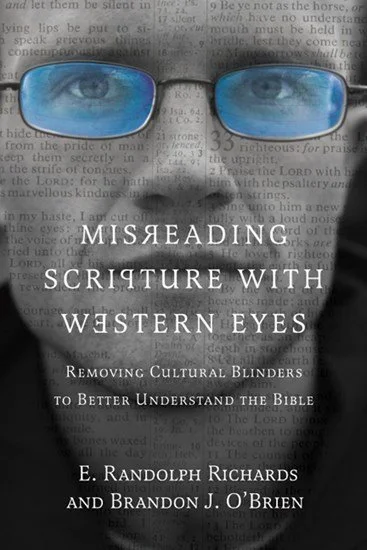Misreading Scripture with Western Eyes
Over the past year or so, it’s been a pleasure getting to know Brandon O’Brien, who moved to Phoenix with his family after living in New York for a number of years. I love our conversations, which always cover a lot of ground and leave my head spinning – in a good way, usually.
Brandon works for Redeemer City to City and has written a number of books, including Misreading Scripture with Western Eyes: Removing Cultural Blinders to Better Understand the Bible (InterVarsity Press), co-authored by E. Randolph Richards. It’s one of those books I’ve been aware of for years but had never managed to read. I’m glad I finally picked it up.
“We can easily forget that Scripture is a foreign land and that reading the Bible is a cross-cultural experience,” they write early on.
I’ve spent my life between cultures. I’m thankful for the unique perspective my liminal existence has given me. But even so, I don’t always consciously think of the Bible in those terms. Like many of us, I grew up on the Bible. I’ve absorbed a lot of it from a young age and continue to absorb it today. But if I’m honest, I know I’m tempted to interpret scripture to mean what I want it to mean (or what my culture or church wants it to mean), without stopping to consider where my own lenses might be distorting the message in unintended ways.
I don’t expect this book to put an end to that struggle – nor is that what the authors have set out to do – but I know it’ll give me helpful questions to ask when I study the scriptures or hear them read in church, remembering that they were written by brown-skinned men, moved by the Holy Spirit, to audiences in times and places quite different from my own.
Recognizing this does not negate the wonderful truth, as the catechism of the Anglican Church of North America reminds us, that “God ‘has spoken through the prophets’ (Nicene Creed) and continues to speak through Scripture today” – that through the Bible, “the Holy Spirit will teach, rebuke, correct, and train me in the righteousness that God desires. The prayerful study of Scripture forms me for life in Christ and the service of God and my neighbor.”
